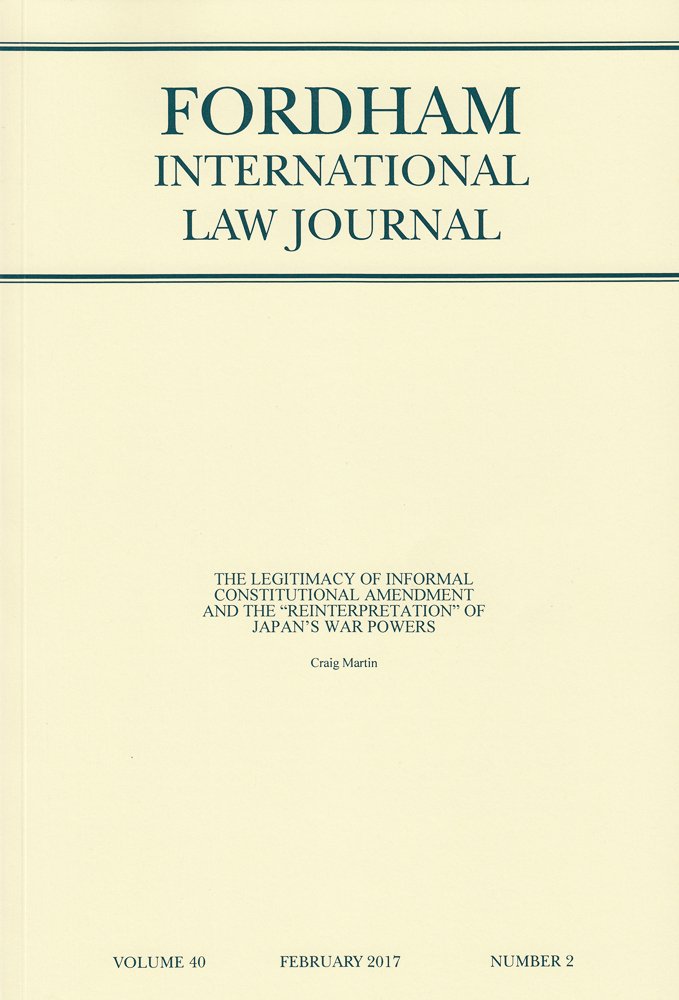 My latest big law review article has just been published: “The Legitimacy of Informal Constitutional Amendment and the ‘Reinterpretation’ of Japan’s War Powers,” 40 Fordham International Law Journal 427 (2017). It analyzes the “reinterpretation” of Article 9 of the Constitution of Japan for what insights it can offer our understanding of theories of informal constitutional amendment. At the same time it examines what those theories can tell us about the legitimacy of the Japanese “reinterpretation.” The abstract is as follows:
My latest big law review article has just been published: “The Legitimacy of Informal Constitutional Amendment and the ‘Reinterpretation’ of Japan’s War Powers,” 40 Fordham International Law Journal 427 (2017). It analyzes the “reinterpretation” of Article 9 of the Constitution of Japan for what insights it can offer our understanding of theories of informal constitutional amendment. At the same time it examines what those theories can tell us about the legitimacy of the Japanese “reinterpretation.” The abstract is as follows:
The government of Japan has purported to reinterpret the famous war-renouncing provision of the Constitution in a controversial process that deliberately circumvented the formal amendment procedure. This article argues that these developments should be of great interest to constitutional law scholars in America because they bring into sharp focus issues that remain underdeveloped and unresolved in the debate over informal amendment. Theories on informal amendment suggest that there are some constitutional changes that exceed the reasonable range of normal interpretive development, but which are not implemented through formal amendment procedures. The existence, scope, and legitimacy of such informal amendments remains hotly contested.
This article focuses on the key issue of legitimacy. It uses the Japanese reinterpretation as the context in which to explore the relationship among three suggested factors affecting the legitimacy of informal amendment, namely: the public ratification of the change; the intent of the agents of the change; and the passage of time. It also suggests a new way of conceptualizing the relationship among authority, legitimacy, and time in thinking about informal amendments, in that the level of constitutional authority and degree of legitimacy that may be enjoyed by contested changes will begin to diverge with the passage of time.
The article argues that deliberate attempts to effect significant constitutional change in a manner calculated to circumvent the formal amendment process—such as the Abe government’s reinterpretation effort in Japan—are prima facie unauthorized and illegitimate at the time they occur. Moreover, only the most explicit and deliberate expressions of popular sovereignty can serve to legitimate such changes. But while such deliberate informal change will always remain unauthorized, it may be legitimated with the passage of time. I argue that this legitimation may, and should, take longer than for less contested forms of change.
